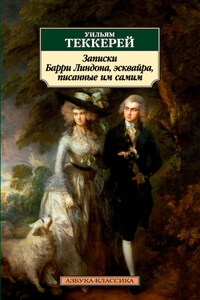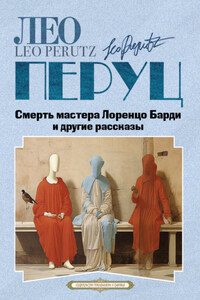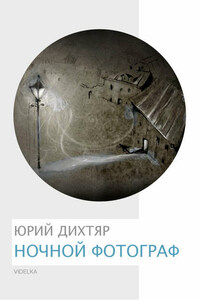Chapter One.
Introduces a Man and a Mystery
“There’s some mystery about that girl – I’m certain of it.”
“What makes you suspect that?”
“Well, first, she’s evidently a lady – the daughter of a man who has come down in the world most probably: and secondly – ”
“Ah! You mean the secret lover – the man who was here yesterday and bought a twenty-guinea evening gown of her to send to his sister – eh?” exclaimed Mr Warner, “buyer” of the costume department of the great drapery house of Cunnington’s, in Oxford Street, that huge store which, as everybody knows, competes with Whiteley’s and Harrod’s for the premier place of the middle-class trade in London.
“Yes,” laughed Miss Thomas, the rather stout middle-aged woman who was head saleswoman of the department, as she stood in the small, glass-partitioned office of the buyer, a pleasant-faced man of forty-five who was an expert in ladies’ costumes, and twice yearly bought his stock personally in Paris and in Berlin. “Yes. She’s a really nice girl, but I can’t quite make her out, although she’s been here for over a year now.”
“And the lover?” asked the buyer, with a glance across the long square room where autumn costumes of every description were displayed upon stands, or hanging by the hundred in long rows, while ranged round the walls were many expensive evening-dresses exhibited in glass cases. It was afternoon, and the place was full of customers, the assistants in their neat black holding ready-made skirts to their sides to try the effect, or conducting the prospective purchaser to the fitting-rooms. And yet they were not what Mr Warner termed “busy.”
“The man, too, is a mystery, like Miss Rolfe. Nobody knows his name. He comes in sometimes, goes up to her, and asks to be served with a skirt or something, and has it sent to Mr Evans at some chambers in Dover Street. The name is, of course, not the right one,” said the head assistant. “But Miss Rolfe knows it, of course?”
“Probably she does.”
“And she meets him after business hours?”
“I think so. But she keeps herself very much to herself, and is always at home early.”
Mr Warner glanced across at the tall, fair-haired, handsome girl, whose figure showed to such advantage in her black satin gown. At that moment she was displaying a cheap tweed skirt to two middle-aged women. Her face, as he caught its profile, was very soft and refined, the contour of her cheeks perfect, and the stray wisp of hair across the brow gave a softness to her countenance that was charming. Many a stage girl whose photograph was displayed in the shop-windows was not half so beautiful as the demure, hard-working shop-assistant, Marion Rolfe.
The air of mystery surrounding her, Mr Warner found interesting, and the love-romance now in progress he intended to watch. Towards his assistants, he was always lenient. Unlike some “buyers,” he was never hard, and never bullied them. He believed that by treating them with kindliness and with the courtesy every man should show towards a woman he obtained the best of their business abilities, as no doubt he did. “Warner of the Costumes” was known through the whole “house” as one of the most considerate of men, and one of the most trusted of old Mr Cunnington’s advisers. Those in his department were envied by all the other seven hundred odd assistants in the employment of the great firm.
While Mr Warner and Miss Thomas were speaking, a smart-looking, fair-haired, fair-moustached young man of about twenty-five, in frock coat and silk hat, entered, and walking up to the little office, greeted the buyer saying —
“Mr Warner, I’m sorry to worry you, but may I speak to my sister for a moment on some important family business? I won’t keep her but a few moments, for I see she’s busy.”
“Why, certainly, Mr Rolfe,” was the good-humoured reply, as Miss Thomas went away to serve a customer. “It’s against our rules, as you know, but for my own part I can never see why a young lady need be debarred from speaking to her own brother.”
“You’re always very good, Mr Warner,” responded the young man, “and I’d like to thank you for many little kindnesses you’ve shown to Marion.”
“Oh, nothing, nothing, my dear Mr Rolfe,” Warner said. “Your sister is an excellent business woman – one of the best I have, I may tell you. But look! She’s disengaged now. Go over to her.” And he watched the young man crossing the department.
Marion, surprised when her brother stood before her, immediately asked whether he had received Mr Warner’s permission.
“Of course I have,” was his quick reply in rather an excited manner, she thought. “I just ran up to tell you that I have to go abroad suddenly to-night, and to say good-bye. Old Sam Statham is sending me out to Servia. He only told me at one o’clock that I must go, and I’ve been buying some things necessary.”
“To Servia!” exclaimed the girl, amazed that her brother, to whom she was devoted, was to go so far from her.
“Yes. We have some mining interests and some other things out there, and old Sam suddenly decided to send me out to make certain inquiries. I shall be away a month or two, I daresay, as I have to go to see a new mine in the course of preparation down on the banks of the Danube somewhere.”














